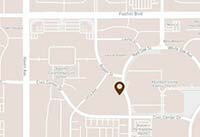Undergoing gastric sleeve surgery is a significant step towards achieving weight loss goals and improved health. However, the procedure necessitates major dietary adjustments to ensure proper healing, avoid complications like stomach stretching, and establish sustainable eating habits. This guide will explore the best post-surgery foods for gastric sleeve patients, with a focus on soft, nutrient-dense options that support recovery and long-term wellness.
What to Expect After Gastric Sleeve Surgery
Gastric sleeve surgery involves the removal of a significant portion of the stomach, leaving a smaller, sleeve-shaped stomach that holds much less food. While this reduction aids weight loss by curbing hunger and limiting food intake, it also requires careful dietary modifications.
Post-surgery, patients must prioritize foods that are gentle on their stomach while meeting nutritional needs. Failure to follow dietary guidelines can lead to complications, including discomfort, nutrient deficiencies, or even stomach stretching, which occurs when the smaller stomach is overfilled or subjected to pressure over time.
The diet following gastric sleeve surgery typically progresses through four stages over several weeks, starting with liquids and gradually introducing soft and solid foods. Close medical oversight is crucial during this process to optimize healing and long-term success.
The Four Stages of Diet Progression Post-Surgery
Stage 1: Clear Liquid Diet
Immediately after gastric sleeve surgery, patients will begin with a clear liquid diet, typically for the first 1-2 days. The goal here is to stay hydrated and allow the stomach to begin healing without stress.
Recommended options include:
- Broth or clear soups
- Sugar-free gelatin
Foods and beverages should be consumed in small sips to avoid overwhelming the stomach. It’s essential to strictly follow your surgeon’s guidelines during this stage.
Stage 2: Full Liquid Diet
The second stage typically lasts about two weeks and includes more nutrient-rich liquids to facilitate healing while keeping digestion gentle.
Recommended foods include the following and should be consumed in very small portions over time to prevent strain on the stomach lining. Some choices include the following list.
- Protein shakes or powders (ensure they are low in sugar and high in protein)
- Cream soups (well-strained, with no chunks)
Protein shakes during this stage are particularly important as they help patients meet their protein goals—an essential component for wound healing and muscle preservation.
Stage 3: Pureed and Soft Foods
Soft and pureed foods are introduced approximately 2–4 weeks post-surgery, depending on individual recovery progress. This stage aims to prepare the digestive system for gently resuming solid foods. Patients must puree or mash foods to prevent irritation.
Recommended foods for this stage include:
- Scrambled eggs (soft and cooked without added fats)
- Cottage cheese or ricotta cheese
- Portion sizes should range between 1 to 3 tablespoons per meal, gradually increasing as advised. It is imperative to eat slowly and stop at the first sign of fullness to avoid stretching the stomach.
Stage 4: Soft and Solid Foods
Around 4–6 weeks after surgery, patients transition to soft, solid foods that are easy to chew and digest. Nutrient density becomes a significant focus during this period to develop sustaining habits and prevent malnutrition.
Highly recommended soft-solid foods include the following proteins and vegetables with smaller quantities of unprocessed carbs. Also take care to include natural fiber options rather than processed goods.
- Cooked, soft vegetables (e.g., green beans or broccoli)
- Low-fat cheese or yogurt
Gradually reintroduce new foods one at a time to monitor your body’s response. Pay close attention to your portion sizes, as overeating can lead to discomfort or long-term stomach complications.
Nutritional Priorities After Gastric Sleeve Surgery
After gastric sleeve surgery, maintaining optimal nutrition is vital for recovery and weight loss success. The following nutrients should be prioritized to support healing and prevent deficiencies.
Protein
Protein is the body’s building block, essential for healing tissues, preserving muscle, and maintaining energy. Gastric sleeve patients should aim for 60–80 grams of protein daily, sourced from items like lean meats, eggs, dairy, and protein supplements during earlier stages of recovery.
Vitamins and Minerals
Due to reduced stomach capacity, patients may struggle to absorb adequate nutrients from food alone. Key vitamins and minerals include:
- Vitamin B12
- Calcium (from low-fat dairy or supplements)
- Iron (important for those with limited red meat in their diet)
- Vitamin D and C
Most patients will be required to take multivitamins or specific supplements to meet their daily needs. Always consult your doctor for personalized recommendations.
Hydration
Staying hydrated is crucial but challenging after surgery. Small, frequent sips of water (at least 64 ounces daily) should be the focus. Avoid drinking during meals, as it can interfere with digestion and exacerbate feelings of fullness.
Things to Avoid
While incorporating recommended foods, gastric sleeve patients should also eliminate harmful dietary choices that can impede progress or cause complications.
Avoid these items post-surgery:
- Sugary foods and desserts
- Tough or stringy meats (e.g., steak or jerky)
- These foods can tax the newly formed stomach and derail weight loss goals, making moderation or avoidance crucial.
Tips for Long-Term Success Post-Surgery
Adopting healthy eating habits after gastric sleeve surgery promotes long-term effectiveness and prevents risks like stomach stretching or nutrient deficiencies.
Some practical tips include:
- Practice mindful eating – Eat slowly, chew thoroughly, and tune into your body’s fullness signals.
- Stay consistent with portion control – Small meals throughout the day help prevent overloading the stomach.
- Avoid distractions – Eat away from screens to remain focused on your food intake.
- Follow-up support – Regularly consult your weight loss doctor and dietitian to address challenges or refine your meal plan.
Partner With Davtyan Medical Weight Loss & Wellness Today
Gastric sleeve surgery represents the beginning of a life-changing transformation—not the end of your weight loss journey. Success depends on adhering to post-surgery dietary guidelines, focusing on protein-rich, gentle foods, and avoiding harmful habits.
If you’re considering gastric sleeve surgery or need guidance post-operation, Davtyan Medical Weight Loss & Wellness is here to help. Our team specializes in creating customized recovery plans, offering resources on lifestyle changes, and providing long-term support for weight loss maintenance.
Start your healthiest chapter today. Contact Davtyan Medical Weight Loss & Wellness to schedule a consultation and optimize your post-surgery strategy.






















